Destruction in the name of science
TU Dortmund University and Shimadzu – Universal testing machines in education and research
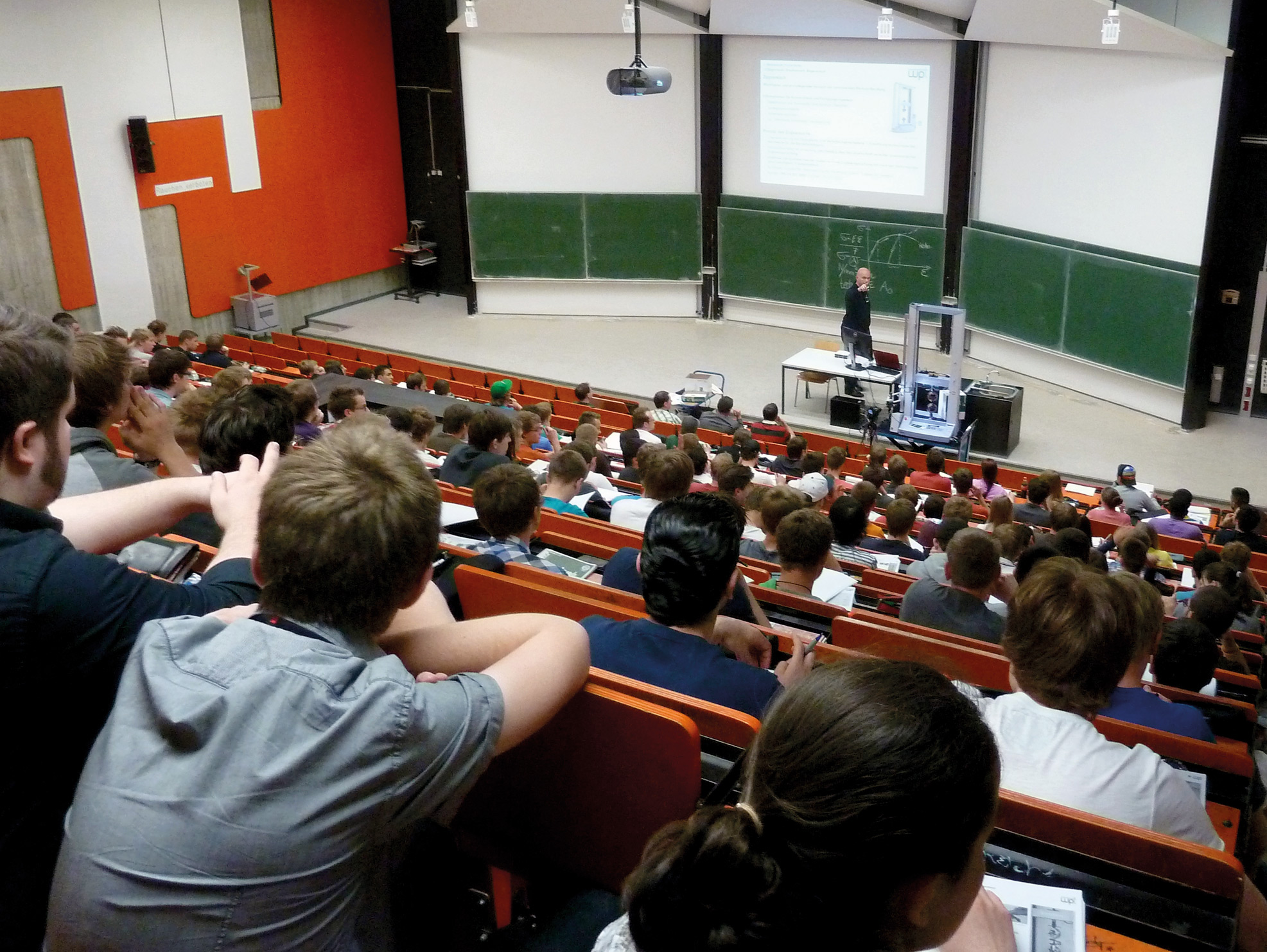 Figure 1: Shimadzu in the lecture hall …
Figure 1: Shimadzu in the lecture hall …
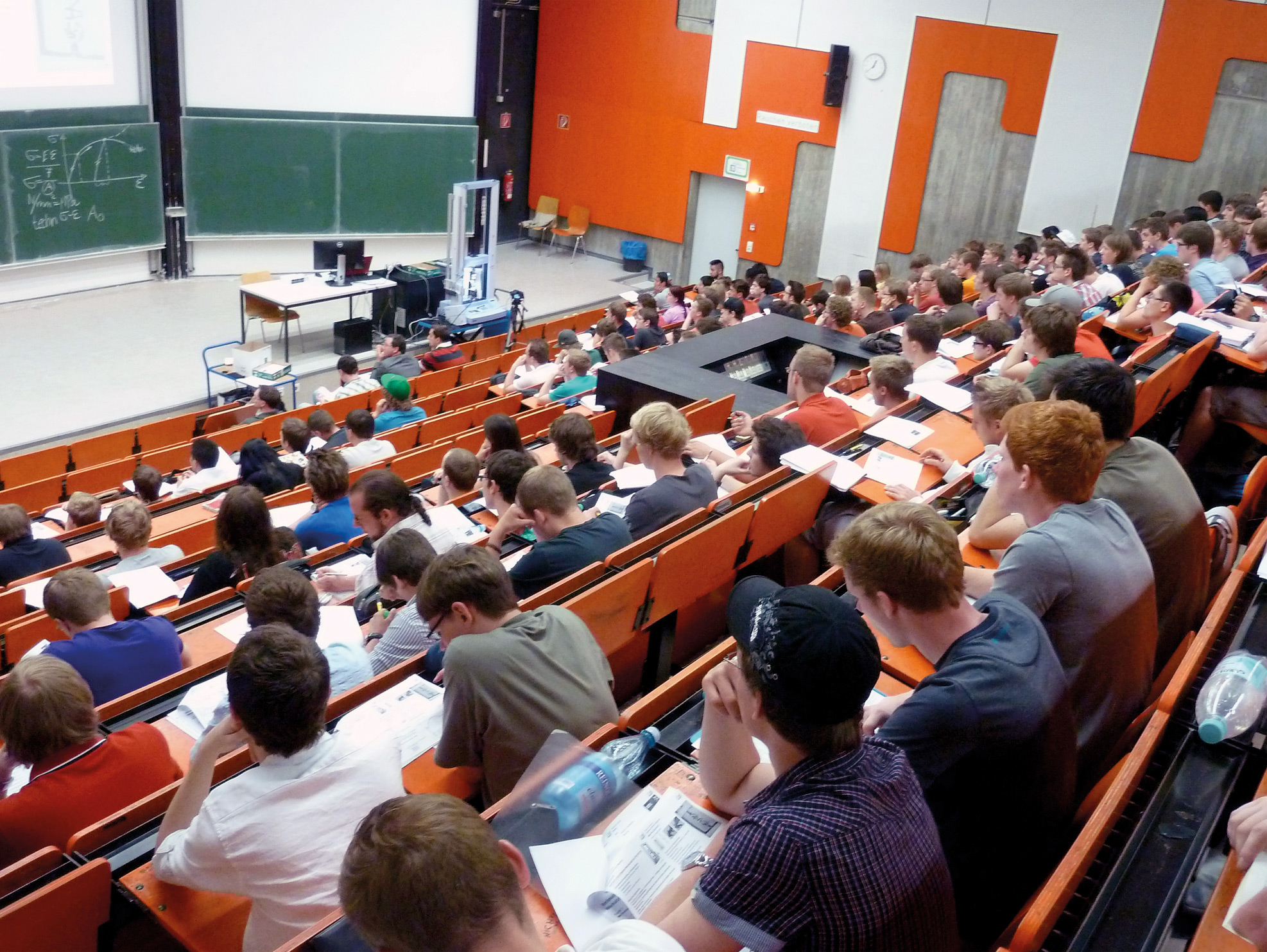 … Materials engineering lecture 3 at the TU Dortmund University
… Materials engineering lecture 3 at the TU Dortmund University
To teach the fundamentals of materials engineering to large numbers of students, the Department of Materials Test Engineering (WPT) of the TU Dortmund University (Germany) has developed an interactive lecture concept that replaces the former small group laboratory experiments while retaining all active elements (Figure 1). In terms of content, the focus is on visual presentation of practice-oriented knowledge and features mobile small-load testing machines used in advanced research.
Under the guidance and supervision of the staff, students operate measuring and testing systems during the hands-on experiments. The results are subsequently presented and discussed in the auditorium to enhance communication and interaction between instructors and students. As well as increasing motivation and understanding, practical demonstrations of difficult-to-grasp theoretical concepts can significantly reduce failure and dropout rates of students.
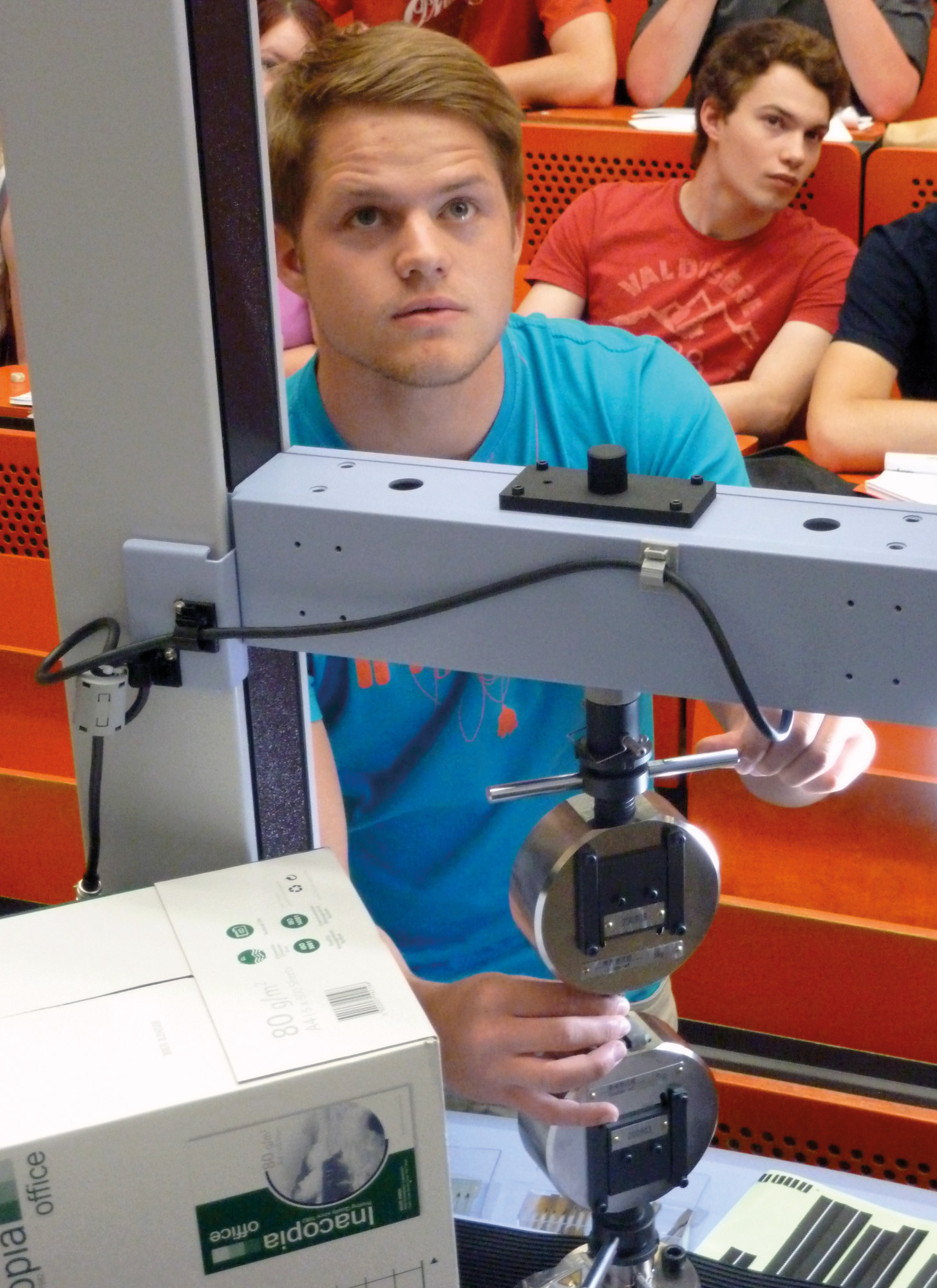 Figure 2: Carrying out a tensile test …
Figure 2: Carrying out a tensile test …
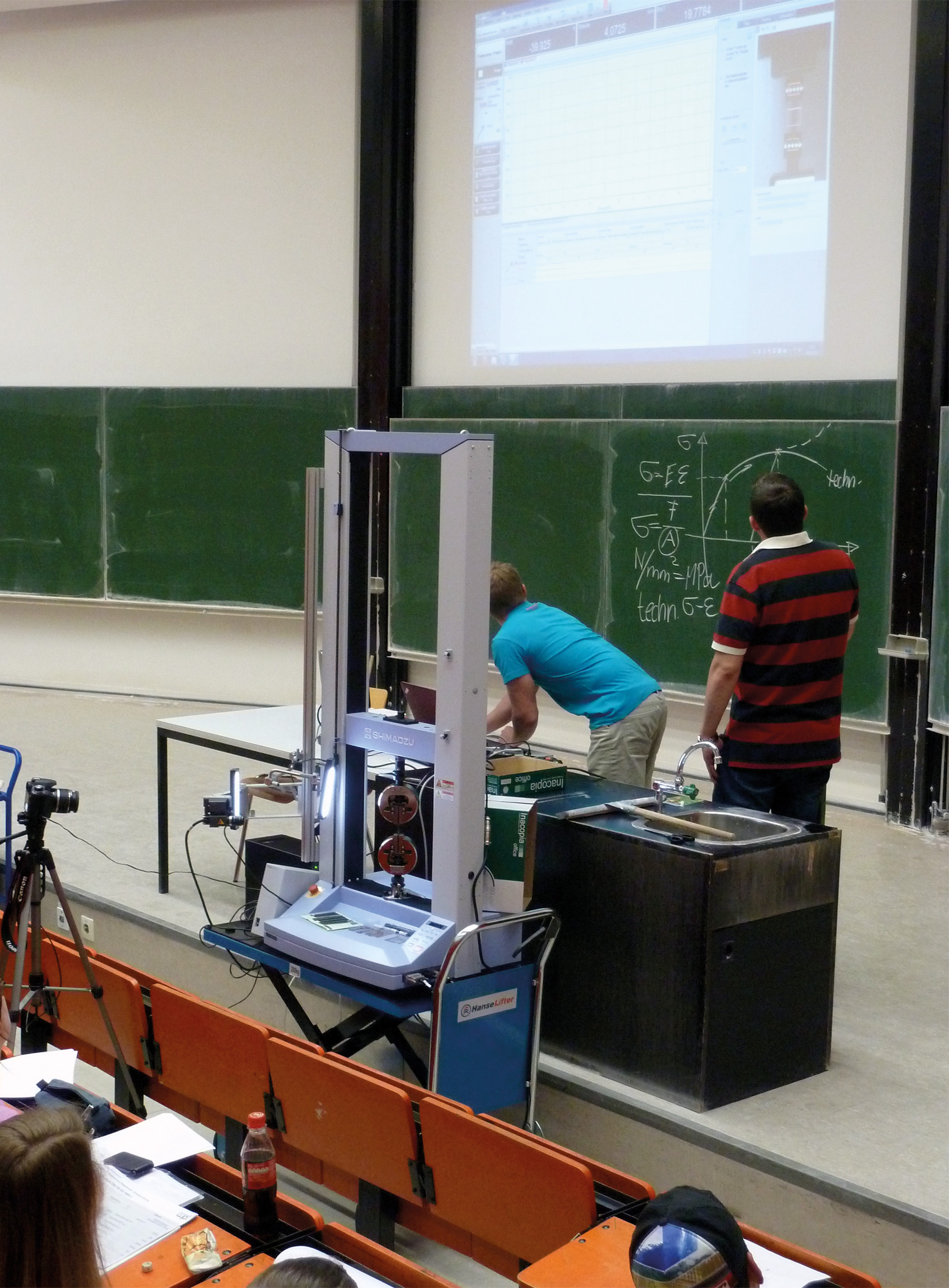 … in the lecture hall – TU Dortmund University
… in the lecture hall – TU Dortmund University
The tensile test is a basic experiment used in destructive testing of materials and components. This test was introduced to the young scientists using Shimadzu’s AGS-X 5 kN universal testing machine. The instrument is equipped with a TRViewX video extensometer. The student’s task was to prepare and to clamp samples as well as to align the video extensometer (Figure 2). The success of the new lecture concept is evident from the active participation of the students and the highly positive course evaluation.
Accurate measuring and testing for materials assessment
Prof. Dr. Frank Walther is the Head of the Department of Materials Test Engineering (WPT) at the TU Dortmund University in Germany. Basic concepts as well as application-oriented topics in destructive and non-destructive materials and component testing are addressed in research and teaching. The department focuses on the application of various measuring and testing methods to characterize structure-property relationships, assess damage propagation and calculate the (remaining) lifetime of structural materials. Microstructure- and mechanism-based characterization of the fatigue behavior from Low-Cycle-Fatigue (LCF) to Very-High-Cycle-Fatigue (VHCF) as well as corrosion and corrosion prevention are the main focuses. Key qualifications and core research fields are shown in figure 3.
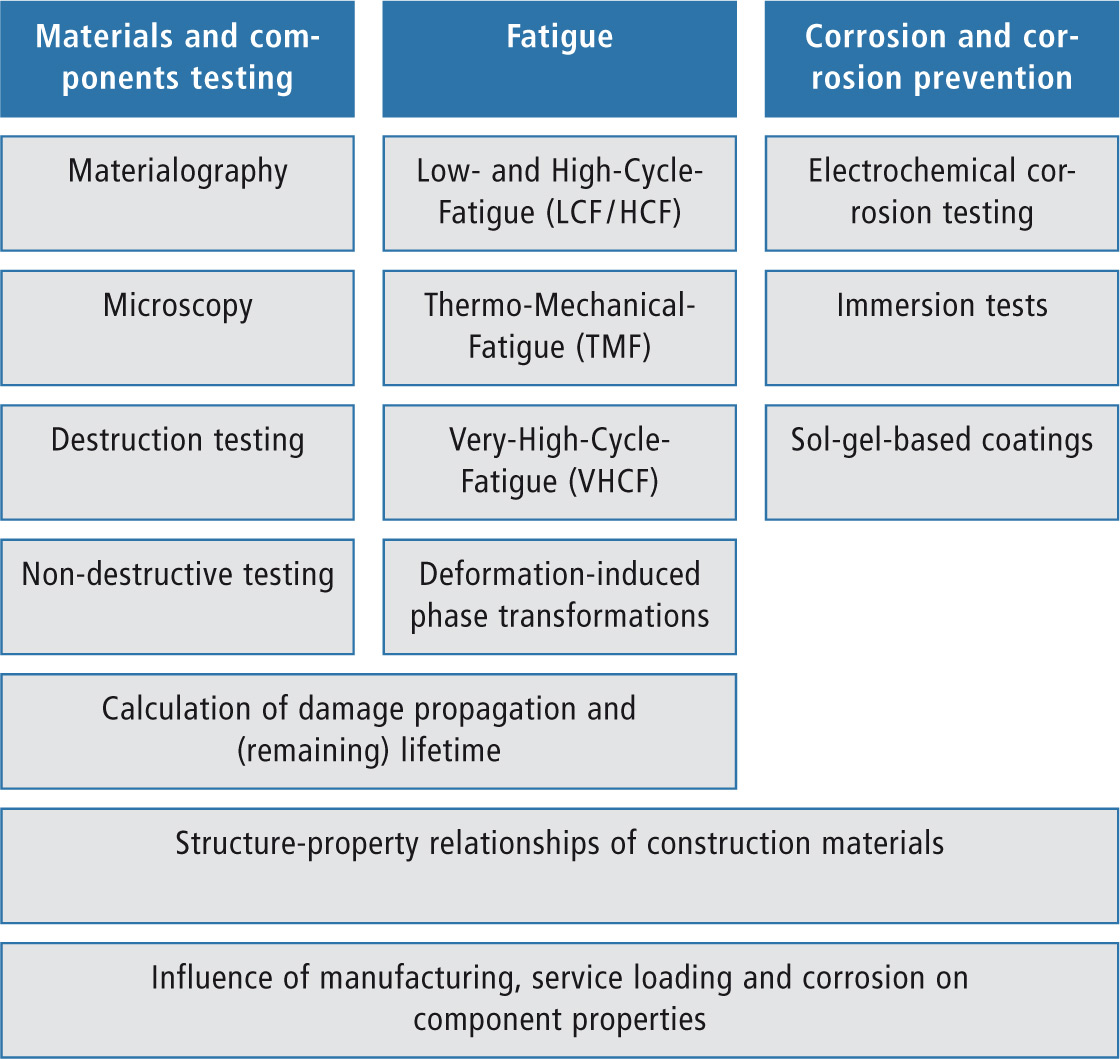 Figure 3: Key qualifications and core research fields
Figure 3: Key qualifications and core research fields
As core elements of the research strategy (Figure 4), the analysis of materials and microstructures is closely linked to process- and production-optimized measuring and testing methods in order to characterize materials and components, model properties and calculate lifetime. Precise description of the influence of manufacturing and operating conditions on fundamental materials parameters serves to optimize the property profile and to increase the functional safety of structural components.
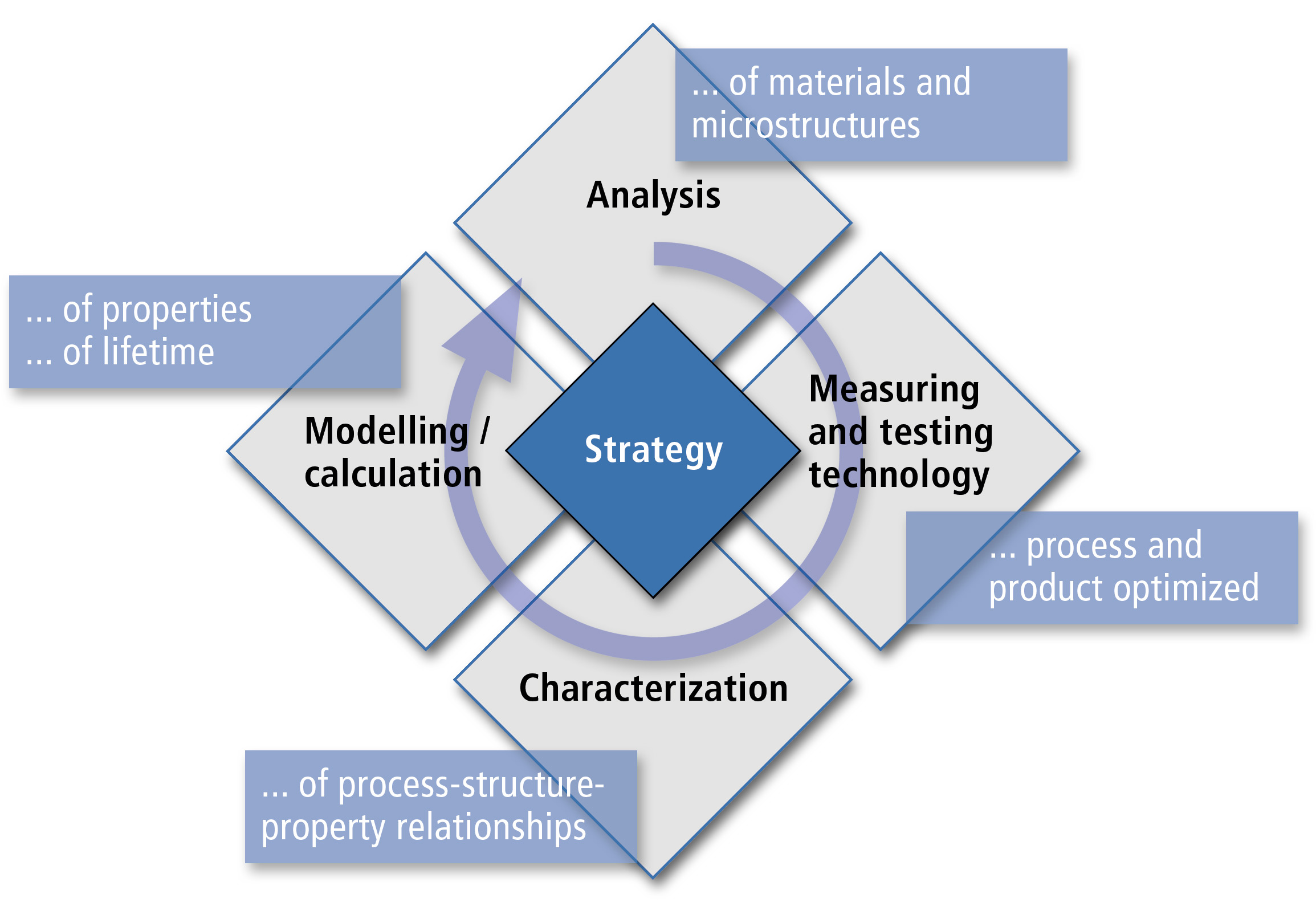 Figure 4: Research strategy
Figure 4: Research strategy
Topics range from fundamental scientific research to application-specific (bilateral) research and development services for industrial companies.
We would like to thank Shimadzu for their excellent cooperation and support of our teaching activities!
Contact:
TU Dortmund
Department of Materials Test Engineering (WPT)
Prof. Dr. Frank Walther
Leonhard-Euler-Str. 5
D-44227 Dortmund, Germany
Phone: +49 (0)231 755-8028
Fax: +49 (0)231 755-8029
E-Mail: frank.walther@tu-dortmund.de
Web: www.wpt-info.de
